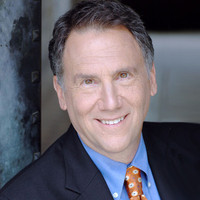It's a radical idea!
You do the job you're hired for.
And that's it.
No late nights. No early mornings. No weekend work. No after-work boozy, schmoozy confabs with managers and co-workers. No nonessential meetings. No unnecessary Zooms. No futile business trips or frivolous off-sites. In short, no anything, anywhere or anytime that is not specifically and directly required by the job.
In other words, you do the job you are paid to do, and nothing else.
Like I say, a radical idea.
Radical, but not rare — not anymore. Welcome to "quiet quitting," the cutesy-pie sobriquet that is given to employees "who continue to perform all their regular duties but refuse to go above and beyond and engage in what researchers refer to as citizenship behaviors."
The researchers at hand are Anthony C. Klotz and Mark C. Bolino, authors of "When Quiet Quitting Is Worse Than the Real Thing," a recent article in The Harvard Business Review.
The "real thing" is quitting, or "noisy quitting," as I call it. Noisy quitting is best characterized by the title of a country song — "Take This Job and Shove It." Let's sing it together, shall we?
The song for quiet quitting would be "Take This Job and Shelve it." It's an anthem for workers who never get fired up, and, at the same time, manage never to get fired.
As you can imagine, company big shots are not enamored of the quiet quitting phenomenon. They believe it is a moral disaster when employees do the bare minimum. It can be an economic disaster, as well, since "for some companies, a workforce that is willing to go beyond the call of duty is a critical competitive advantage."
Co-workers also may not embrace quiet quitting, since they have to shoulder the extra work the quiet quitters quit. This is where the concept of "employee citizenship" comes in. Apparently, many managers expect their employees to be loyal to the company, the same way they are loyal to their country. As citizens of the United States of Citigroup or the Republic of Chevron, they are expected to give their all, all the time. And what do they get in return? "Benefits such as increased social capital, well-being and career success." It sounds good, but it won't pay your cable bill. Or your therapist's.
How to react to quiet quitters is the subject of the authors' article, in which they present "three research-backed strategies for employers." Count on me to provide a few completely unresearched, but devilishly clever strategies for employees.
No. 1: Redefine Core Job Tasks
Managers are advised to "recalibrate job responsibilities to more accurately reflect what work is absolutely necessary." This would be terrific if managers were capable of doing so. When recalibrating your job, for example, your manager could include goals for productivity, production and profitability, goals that will certainly put you under pressure to work overtime. But thee and me know better. We know that for your job, all that is absolutely necessary is for you to show up, stay awake and pretend to look busy.
Do one lick of work more and you won't be a quiet quitter. You'll be a sucker.
No. 2: Listen, Then Invest
Managers are encouraged to learn how their employees are feeling. To get honest feedback, the authors suggest "HR analytic tools." What these tools might be, I don't know, but I am sure they include the rack, the breaking wheel and thumbscrews. Also recommended are "stay interviews" in which the manager can gain "key insights into the employee experience." One question you will hear in a stay interview will surely be "Is this where you want to be 10 years after our hiring interview when I asked you where you want to be in 10 years?"
Answer "yes" and you risk being branded as a delusional suck-up. In short, management material.
No. 3: Less Hustle, More Crafting
Employees shouldn't "feel compelled to go above and beyond in ways that harm their well-being, such as taking on additional projects that cause them to miss out on important family or social events." Perhaps. The company should realize that compared to being called in for your third parent-teacher conference in a month or being dragooned into attending a Megadeth concert by your surly teenager, there are social events a whole lot worse than a mandatory weekend off-site at a luxe hotel with complimentary wine tastings and free massages.
If that doesn't foster employee citizenship, all I can say is: bring on the thumbscrews.
Bob Goldman was an advertising executive at a Fortune 500 company. He offers a virtual shoulder to cry on at bob@bgplanning.com. To find out more about Bob Goldman and read features by other Creators Syndicate writers and cartoonists, visit the Creators Syndicate website at www.creators.com.
Photo credit: 12019 at Pixabay






View Comments